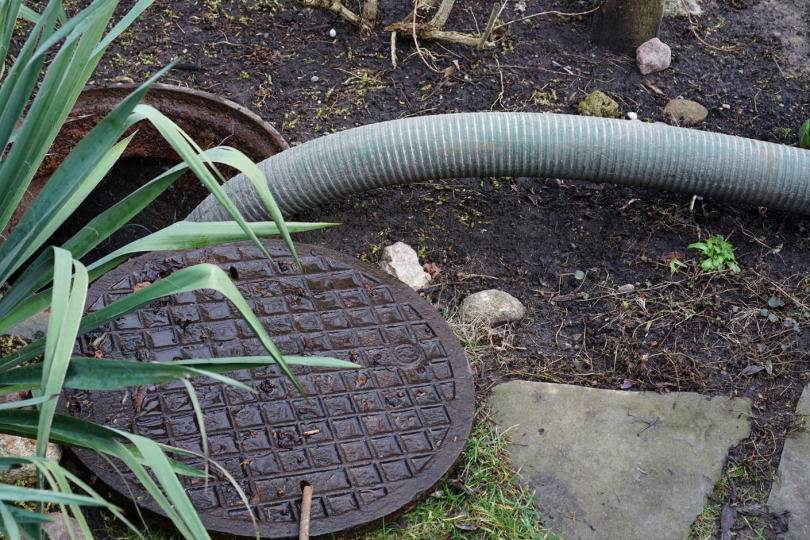Living with a septic system comes with a unique set of responsibilities. The hidden plumbing systems of homes in rural or suburban areas keep our water flowing and our homes clean, but to maintain their smooth operation, they require a bit of attention.
Septic systems, while out of sight and out of mind, need deliberate care to function at their best. After all, a malfunctioning system can not only disrupt your daily life with plumbing emergencies but also be a hefty financial burden. To keep your septic system running smoothly, paying a little attention to five key areas can make a world of difference.
Table of Contents
1. Regular Pumping
Compared to those connected to a municipal sewer, septic systems require more hands-on upkeep. Even with additives to boost bacterial activity, solids will gradually build up in your tank. This sludge can clog the system, back up into your house, and in the worst cases, damage the drain field.
Scheduled pumping is the primary maintenance activity for septic systems. Professionals can inspect your tank and determine if it’s time for a cleaning. This task might not be the most glamorous, but it’s critical. Ignoring it can lead to costly and unsanitary problems.
Discover Why It Matters
The Environmental Protection Agency (EPA) recommends that household septic tanks be pumped every three to five years, depending on usage. Neglecting this can lead to overloading the system, which can result in waste backing up into your home or contaminating your property.
2. Water Conservation
One of the most impactful ways to keep your septic system happy is to monitor your water usage. The more water you put through the system, the harder it has to work.
Learn How to Conserve Water
- Fix leaks immediately to avoid unnecessary water flow and strain on your system.
- Invest in low-flow fixtures to limit water consumption.
- Spread out water-heavy activities like laundry over the week to prevent overwhelming the system at once.
- Consider water-efficient appliances, which can save money and decrease septic strain.
Keeping an eye on your usage isn’t just a septic system best practice—it’s good for the planet and can save you money on your water bill, too.
3. Proper Waste Disposal
Your septic system can handle a lot, but there are things it simply can’t process effectively. To maintain a healthy balance, watch what you put down the drain.
Implement These Septic-Friendly Practices
- Do not flush non-biodegradable items like feminine hygiene products or wipes.
- Avoid putting grease or oils down the drain, which can lead to clogs.
- Be mindful of your garbage disposal—use it sparingly to avoid overwhelming the system with solids.
By being cognizant of what you’re putting into your septic system, you can prevent blockages and excessive buildup, helping it operate efficiently for longer.
4. Inspections and Maintenance
Just like with any major system in your home, a little proactive attention goes a long way. Regular inspections and small, timely fixes can prevent big headaches down the line.
Know What You Should Do
- Look out for pooling water in your yard near the drain field, as this could indicate a problem.
- Check for slow-draining water or funny odors that may signal a need for professional inspection.
Regular pumping and inspection are good general guidelines, but depending on the system type, size of your household, and environmental factors, you may need to adjust these schedules.
5. Harsh Chemical Avoidance
While it might be convenient to grab a bottle of drain cleaner when you’re facing a clog, harsh chemicals can be devastating to your septic system.
Use These Septic-Safe Alternatives
- Enzyme-based cleaners can help break down waste without harming your system’s bacteria.
- Baking soda and vinegar can act as a safe alternative for drain cleaning.
Taking the time to research and use septic-safe products can protect your system and the environment from unnecessary harm.
Caring for your septic system is an essential part of being a responsible homeowner. By staying on top of these five areas, you can avoid potential disasters and keep your system running smoothly. Remember, with septic systems, an ounce of prevention is worth a pound of cure—or in this case, potentially averted pounds of waste.
